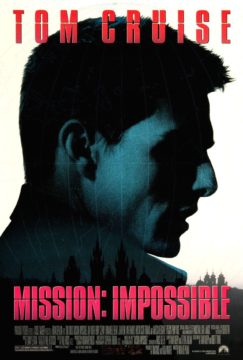Pat Cassels in the Los Angeles Review of Books:
 Over time, Ethan Hunt and his geopolitical exploits have remained a rare cultural constant through a time of real-world geopolitical upheaval. Mission: Impossible’s six installments have been with the United States across three recessions, five presidents, at least two wars, and a global pandemic. That’s the kind of longevity that transforms a franchise from a series of ephemeral blockbusters with loosely connected plots into a quasi-reliable witness to history who has stuck around long enough to recall a few important things, even if its memories are a little hazy, and for some reason all involve Ving Rhames wearing a fedora.
Over time, Ethan Hunt and his geopolitical exploits have remained a rare cultural constant through a time of real-world geopolitical upheaval. Mission: Impossible’s six installments have been with the United States across three recessions, five presidents, at least two wars, and a global pandemic. That’s the kind of longevity that transforms a franchise from a series of ephemeral blockbusters with loosely connected plots into a quasi-reliable witness to history who has stuck around long enough to recall a few important things, even if its memories are a little hazy, and for some reason all involve Ving Rhames wearing a fedora.
Of course, trying to gauge the political philosophy of the Mission: Impossible franchise is a little like trying to gauge the guests’ feelings during an orgy. Sure, they must have something on their minds, but asking would just ruin everyone’s good time. But the franchise’s unprecedented durability, combined with the fact that Mission: Impossible is, however obliquely, about a US intelligence agency (the IMF, literally the “Impossible Mission Force”), has made it an unlikely chronicler of American hegemony in the first quarter of our century—about the only thing the series has ever “quietly” done.
More here.
